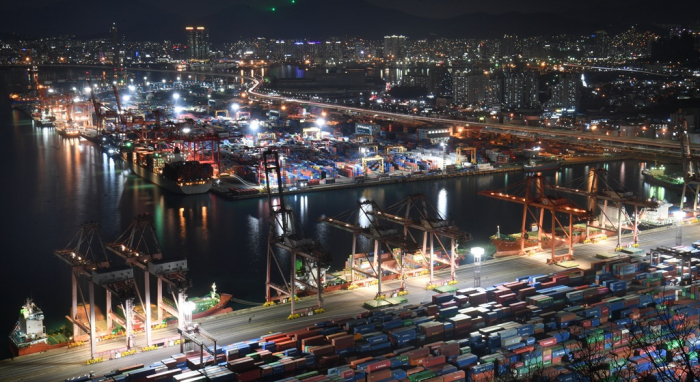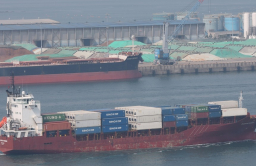-
KOSPI 2577.27 -2.21 -0.09%
-
KOSDAQ 722.52 -7.07 -0.97%
-
KOSPI200 341.49 +0.02 +0.01%
-
USD/KRW 1396 -2.00 0.14%
Korea’s 2021 current account surplus misses BOK forecast
Economy
Korea’s 2021 current account surplus misses BOK forecast
Goods imports jump 31.2% on higher raw material prices -- but cutting the goods account surplus, the trade balance outlook is bleak
By
Feb 10, 2022 (Gmt+09:00)
1
Min read
News+

South Korea’s current account surplus last year missed the central bank’s forecast as higher raw materials prices boosted imports of Asia’s fourth-largest economy.
The current account surplus rose 16.3% to $88.3 billion, data from the Bank of Korea showed on Thursday, falling short of the BOK’s forecast of $92 billion. The surplus was the largest since 2016, however.
Goods imports advanced 31.2% to $573.8 billion on surging commodity prices while goods exports grew 25.5% to $650 billion, cutting the goods account surplus by 5.4% to $76.2 billion on-year.
The trade account is expected to deteriorate further this year as raw materials prices are unlikely to stabilize in the near term on strong global demand and rising inflation expectations.
LOWER SERVICES ACCOUNT DEFICIT
The services account logged a smaller deficit of $3.1 billion, shrinking to nearly a fifth of the $14.7 billion in 2020, as the transport service account reported a record $15.4 billion on soaring shipping volumes and freight costs.
The account of income on equity posted an all-time high surplus of $9.7 billion last year as the income from dividends surged to the largest-ever $32.4 billion.
South Korean companies, especially Samsung Electronics Co., earned a record $23.2 billion from dividends paid by their overseas units, while retail investors enjoyed $9.2 billion in dividends from their investment in overseas stock markets.
Write to Ik-Hwan Kim at lovepen@hankyung.com
Jongwoo Cheon edited this article.
More To Read
-
 Shipping & ShipbuildingHanwha Ocean shares sink after KDB's sale of 4.2% stake
Shipping & ShipbuildingHanwha Ocean shares sink after KDB's sale of 4.2% stakeApr 29, 2025 (Gmt+09:00)
-
Apr 25, 2025 (Gmt+09:00)
-
Apr 25, 2025 (Gmt+09:00)
-
 Business & PoliticsSeoul, Washington agree on July tariff deal framework in '2+2' trade talks
Business & PoliticsSeoul, Washington agree on July tariff deal framework in '2+2' trade talksApr 25, 2025 (Gmt+09:00)
-
Apr 24, 2025 (Gmt+09:00)





